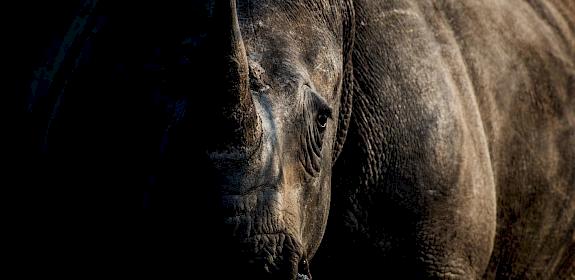
Rhino horn, Ol Pejeta. Kenya, Africa © Ola Jennersten / WWF-Sweden
i
rhino horn: our perspectives on trade
The domestic and international relaxation of bans on trade in rhino horn has been a growing debate within conservation.
Currently, international trade in rhino horn is banned under CITES, in response to growing concerns that increasing demand from Asian nations over the last decade has led to a poaching crisis that has decimated many African rhino populations. The reimplementation of South Africa's domestic rhino horn market in 2017 has reignited the debate as how best to mitigate a crisis that could see rhinos extinct in the wild within a few decades. Below are our thoughts and views on the complex issues behind one of the most lucrative wildlife products in illegal trade.
key issues:
domestic markets
international trade
demand reduction

Seemingly insatiable demand for rhino horn from consumers in China and Viet Nam translates to three rhinos poached per day in South Africa alone
Camilla Floros, ReTTA Project Leader



